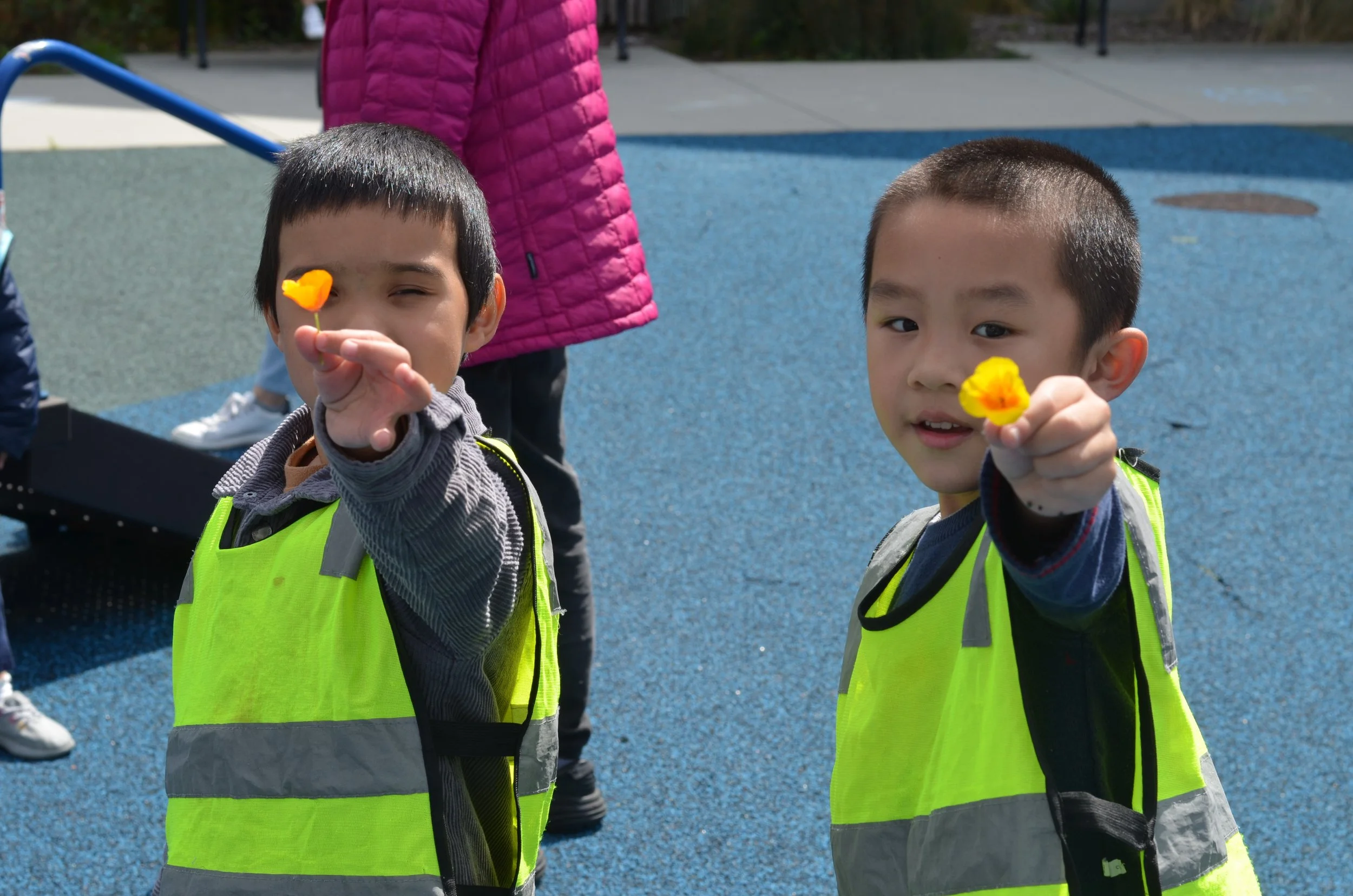Our Program
On any given day, Sunshine Adventures serves children of mixed ages from 18 months old to 6 years old. The multi-aged classrooms provide benefits that are readily apparent when visiting the classroom. Younger children in the classroom have an opportunity to observe and imitate the older students as they work. Older students have an opportunity to reinforce their knowledge by explaining what they are doing and assisting and mentoring younger children. Each child can learn and develop at his or her own pace within a classroom that accommodates many levels of ability and complexity. A child’s experience in preschool will teach them how to participate in school with healthy social skills. Their development along with the early childhood teacher’s recommendations will determine their readiness for kindergarten.
The structure of the Sunshine Adventures is based on providing consistency through creating a rhythm that follows the child’s natural rhythm. This establishes security, a framework in which the children can move between the polarities of activity and focus, or rest. Each day has a rhythm, each week has a rhythm.
We believe in providing a natural and safe way for children to learn with joy and through play.
Daily Schedule
8:00 am – 9:00 am Welcome & Arrival
9:00 am – 10:00 am Free Play or Small Group
10:00 am – 10:30 am Snack
10:30 am – 11:30 pm Clean up & Outdoor Play
11:30 pm – 12:00 pm Lunch
12:00 pm – 3:00 pm Nap time and Quiet Activities
3:00 pm – 4:00 pm. Circle time
4:00 pm – 4:30 pm Evening snack
4:30 pm – 5:30 pm Free Play & Pick- Up
Learning Outcomes
-
Independence & Self-Regulation
Exercises for the classroom to help children satisfy the need for meaningful activity. They include those daily activities which adults perform to maintain the environment and promote cohesive human relations. The practical life area is designed to allow the child to practice skills that will lead to greater independence and self-control. This area provides the child with the opportunity to engage in tasks associated with the real world of home, garden, and self- care. This work allows the child to develop concentration and attention to detail. Fine motor skills are honed, as the child gains a sense of satisfaction that comes from completing a task. They develop a deep joy for caring for themselves, others, and the environment. Developing children's independence, concentration, coordination, and order are necessary for the successful transfer from preschool to kindergarten. Regulation leading to greater self-awareness and maturity are essential in achieving academic success as well as in building social-emotional skill.
-
Emotional & Cognitive Development
The multi-age environment of our program promotes friendships and strengthens relationships. Through classroom activities and modeling by teachers, children develop the necessary skills for conversation, conflict resolution, greeting, and thanking. By participating actively in the classroom, children learn to positively interact and to problem solve. It also develops leadership through aging out transitions when a child who was once a junior (younger) in the class becomes the leader when older children move up. Valuable higher order thinking skills like problem-solving, decision-making, and planning, teamwork are developed and harnessed in this program.
-
Mastery, Autonomy, & Purpose
Language is an integral part of the entire Sunshine Adventures Nob Hill preschool curriculum. Stories, songs, poems along with conversations with adults and peers help children increase their vocabulary and develop oral language skills. The materials in the math area are designed for the development of a concrete understanding of abstract mathematical concepts. The hands-on materials in the math area help the child sequentially progress from basic comparisons of different quantities and their numeric symbols, through addition and subtraction and on to the combination of numbers, multiplication, division and fractions. The objective of science in our classroom is to develop each child’s natural sense of wonder and invite them to find answers to some of their “Why’s”. Each classroom contains many materials with which to explore various aspects of science.
Students begin to achieve mastery of foundational skills in literacy and numeracy vital for further education; developed autonomy that satisfies the need for self efficacy and competence; understand the essence of purpose that help children make sense of the world, make better decisions, and begin to mold future aspirations.
